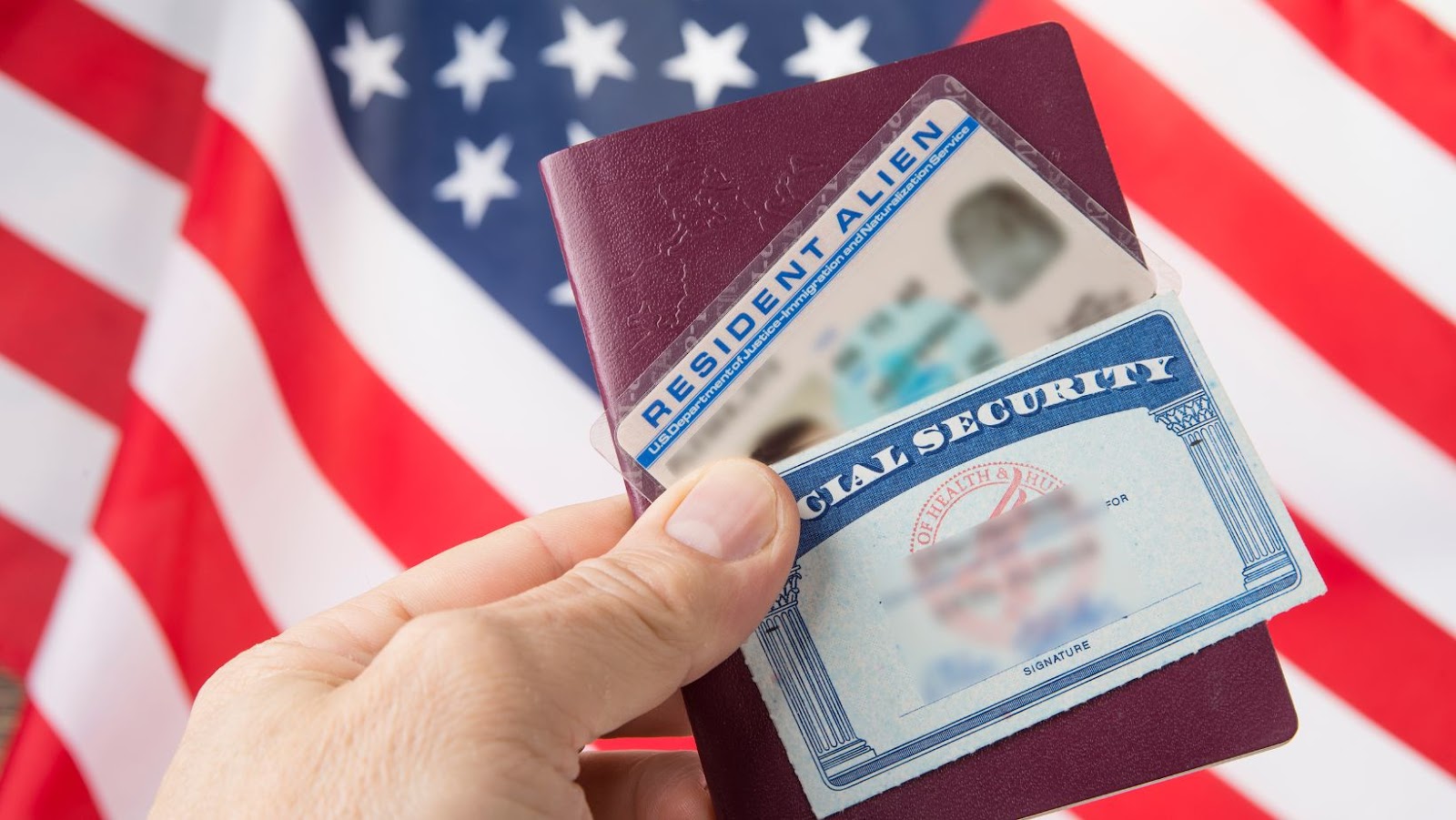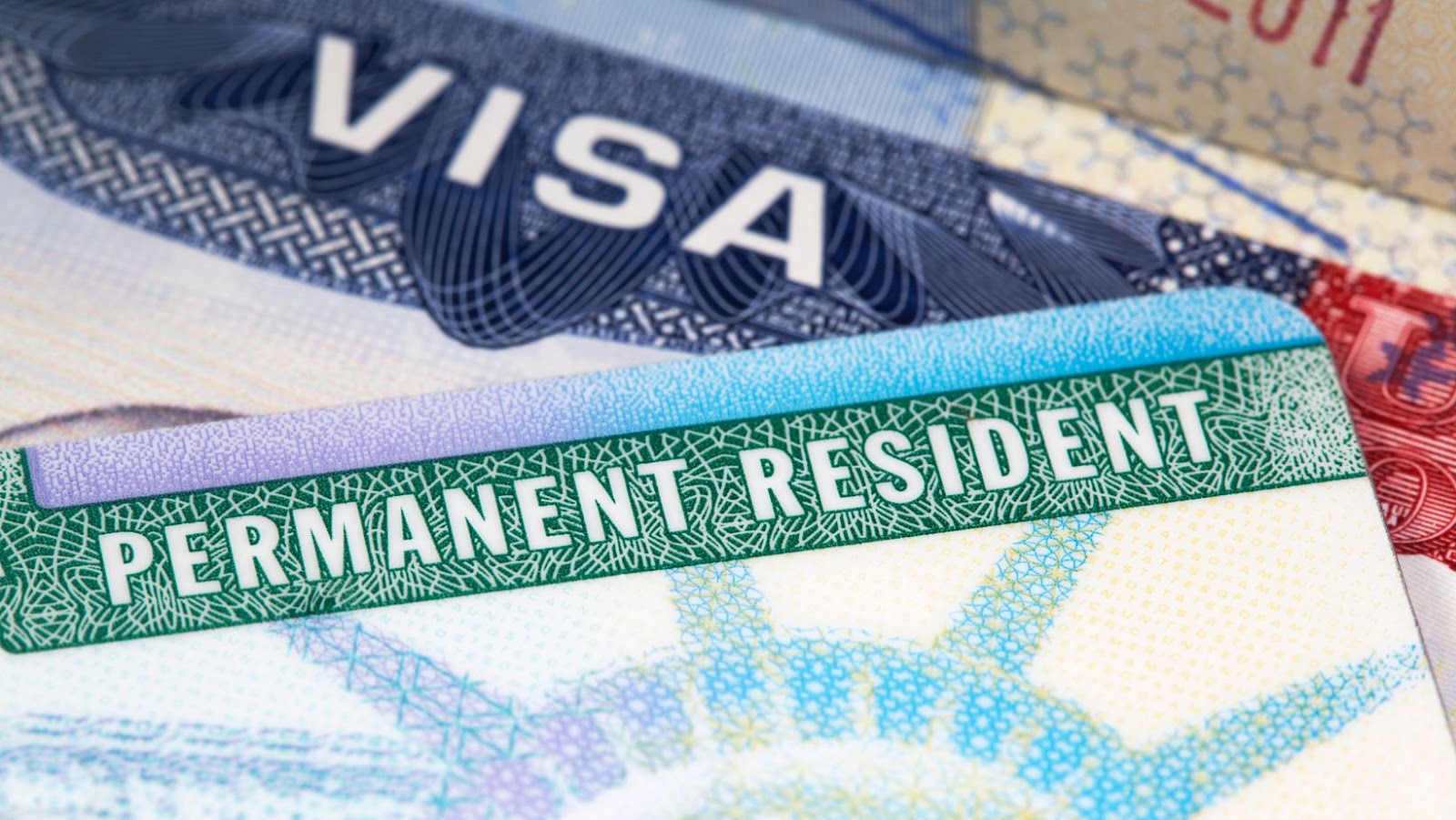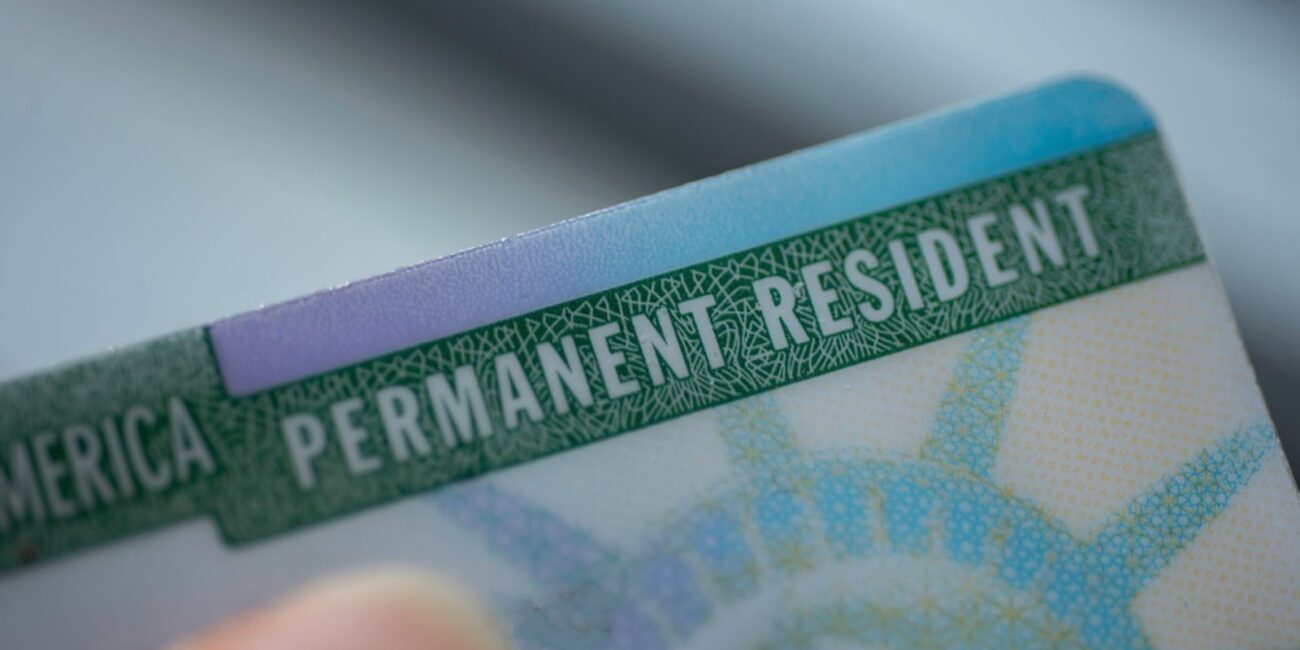To apply for a travel document, follow these steps:
- Complete Form I-131: Start by completing and submitting an Application for Travel Document (Form I-131) with the USCIS. Attach a copy of the receipt notice for the pending I-485 application along with it.
- Schedule Biometrics Appointment: After USCIS receives your application, schedule an appointment to have your fingerprints taken at a USCIS Application Support Center (ASC).
- Await Approval: Once USCIS approves your Application for Travel Document, they will mail you an Advanced Parole document. You can’t travel until you receive the approved documents from them.
- Gather all Required Documents: Traveling with an Advanced Parole document requires specific documentation such as the advanced parole itself, passport biographical page, and US visa stamp if available. Please ensure that all required documents are obtained before travelling.
Additionally, note that form I-131 should be submitted together with form I-485 or after it is submitted but still pending review by the USCIS. Moreover, only people who satisfy certain conditions can apply on advance parole. This includes people undergoing adjustment status, refugees/asylees applying for adjustment of status or traveling countries where they have protection under agreements like TPS or know as temporary protected status.
As per USCIS report there were 1.3m refugees currently in the US in August 2021.
Don’t forget your passport, advance parole document, and a sense of adventure for your overseas trip.
What Documents do I Need to Travel with Advance Parole
To make your Advance Parole Travel successful, you must carry the necessary documents. In order to fulfill this requirement, you need to have the following documents in hand – Passport and Visa, Advance Parole Document, I-131 Application for Travel Document, Employment Authorization Document (EAD), Form I-551 (Green Card), and Other Supporting Documents. These documents will help you in obtaining the legal status to re-enter the United States.
Passport and Visa
For Advance Parole Travel, ensuring that your passport and visa are in order is crucial. Below is a table showcasing the necessary information about Passport and Visa:
| Document | Required |
| Passport | Must be valid for at least 6 months after intended period of stay |
| Visa | Depends on the destination country |
It is also important to note that there are different types of visas such as tourist, work, student, business, etc., depending on the purpose of travel. Thus, it’s vital to check with the embassy or consulate of the destination country beforehand.
Moreover, it’s important to make sure that all information provided in both documents is accurate and without errors. Any discrepancies may lead to delay or even denial of entry into another country.
Lastly, did you know that passports have been used since medieval times? However, they only contained basic details about travelers such as their name and origin countries. Modern-day passports commonly include biometric data such as fingerprint scans and digital photographs.
Get your Advance Parole Document or risk being stuck in the US – unless you’re okay with living out your Groundhog Day fantasy.

Advance Parole Document
Travel Document for Advance Parole
If you are planning an international trip while your green card or adjustment of status is pending, you will need to apply for an Advance Parole document. This document allows you to re-enter the U.S. after temporary travel abroad.
To apply for this document, you must fill out Form I-131 and provide supporting documentation. This may include evidence of your pending adjustment of status or a letter explaining why the travel is necessary.
It’s important to note that the processing time for this document can take several months, so it’s recommended to apply as early as possible before your intended travel dates.
Pro Tip: Make sure all required documents are submitted together to avoid delays in processing your application.
Get ready to fill out more paperwork than a high school student applying to college, because the I-131 Application for Travel Document is no walk in the park.
I-131 Application for Travel Document
The Form I-131 is the official application for a Travel Document authorized by United States Citizenship and Immigration Services (USCIS). This document enables individuals to travel abroad for a temporary period while their Adjustment of Status application is still pending. In order to apply for an Advanced Parole Travel Document, it is essential to submit I-131 form with supporting documents.
To apply for an Advanced Parole travel document, you must provide evidence that justifies your request. The documents required include a copy of your passport, Form I-485 receipt notice, two passport-style photographs, and the appropriate fee payment. USCIS may also request additional information or evidence upon review of the initial application.
It’s worth noting that Advance Parole Travel is not granted on all grounds; hence individuals are recommended to consult immigration attorneys if they have specific eligibility questions.
There was once an individual who had submitted his Advance Parole Travel Document without including his passport. As a result, he received notification from USCIS requesting additional evidence which caused undue delay in his travel plans. It’s crucial to double-check all required documents before submitting them for processing.
Nothing screams ‘I can legally work in the US’ like waving around your Employment Authorization Document like it’s a VIP pass.
Employment Authorization Document (EAD)
The Employment Authorization Document (EAD) serves as proof that an individual is authorized to work in the United States. It is often issued in conjunction with a visa or application for permanent residence.
The EAD includes information such as the individual’s name, photo, and immigration status. It must be presented to prospective employers as evidence of an individual’s legal right to work.
It is a crucial document for individuals who are not U.S citizens or permanent residents but are legally allowed to work in the United States. Without it, they may face difficulties in finding employment.
Make sure you gather all necessary documents before traveling internationally using advance parole. Don’t risk being denied entry due to insufficient paperwork. Keep yourself safe by staying up-to-date on current travel requirements.
Without the Form I-551 (Green Card), you may as well be traveling with a cardboard cutout of yourself.

Form I-551 (Green Card)
The Permanent Resident Card, commonly known as the Green Card, proves an individual’s permanent residency in the US. It confirms their employment eligibility and ability to travel abroad with advanced parole. This card serves as a legal identity proof for accessing benefits and services by those who possess it.
It is crucial to have a valid Green Card before traveling outside of the US. Without it, individuals may be denied reentry into the country upon their return. When applying for advanced parole, ensure that your Permanent Resident Card is up-to-date and has not expired.
Having an expired Green Card while traveling abroad can result in many problems for the traveler. The Customs and Border Protection (CBP) may refuse entry or issue a warning notice asking for immediate application renewal for re-entry.
Additionally, when departing from the foreign country on their return journey to America, individuals will also require valid identification documents such as passport or visa along with their Green Card – showing proof of lawful stay at that location.
Therefore, it is advisable that before planning any foreign travel outside of the US, Permanent Residents should check their cards’ expiration dates to ensure its validity during return trips and apply early if approaching expiration date anytime soon.
Make sure to pack your detective skills for the Other Supporting Documents, because finding them is like a game of hide-and-seek with important paperwork.
Other Supporting Documents
The travel document application process can be daunting, and there are various documents one needs to collect before traveling abroad. In addition to the primary documents, specific additional documents might be required depending on the country and person’s situation. These documents can include medical records, educational qualifications, and financial statements that may be needed for visa applications. To enhance a hassle-free advance parole travel experience, presenting a table below with other essential supporting documents that must be carried by travelers:
| Document | Description |
| Current Employment Authorization Document (EAD) | A valid EAD is required if the traveler is an employee in the US. |
| Proof of Relationship | If traveling with dependents or spouse, carry proof of relationship through marriage or birth certificates. |
| Criminal History Records | If you have a crime history record, carry your criminal history documentation. |
Apart from these requirements mentioned in the table above, specific countries require additional files based on their immigration policies. Regarding unique details about this heading and its corresponding data model depicted in the table, it’s important to note that documents like employment authorization proofs could vary based on several factors like citizenship status and country of secondary residence; therefore, it’s always best to confirm which specific documents would be needed by consulting with government authorities.
A true incident about an individual who faced issues during advanced Parole Travel due to insufficient documentation involved a tourist who arrived at the airport with a valid passport but without the necessary visa and other required documentation. Consequently, he was turned away and forced to return to his home country, resulting in a considerable loss of time and money. This highlights the importance of carrying all necessary travel documents to avoid delays or difficulties during international travel.
Applying for a Green Card while on Advance Parole
To apply for a green card while on advance parole, you need to meet specific eligibility criteria and possess vital forms and documents. In order to help you navigate through the process, this section provides a comprehensive overview of the application and interview processes. You will also get insights into the timeline for approval and the essential documents required for each step along the way.
Eligibility Criteria
To be eligible for green card application while on advance parole, an individual must have a qualifying family or employment-based application pending with the USCIS. Additionally, the individual must have advanced parole status at the time of filing the adjustment of status application.
Furthermore, for individuals traveling abroad under advance parole status, it is essential to not remain outside the United States for more than one year to maintain eligibility.
The qualifying family or employment-based application should be in good standing and must not have any inadmissibility issues. USCIS may also require submitting additional documents such as medical examination records and biometrics during the green card interview process.
It is recommended that individuals applying for a green card while on advance parole consult an experienced immigration attorney before submitting their applications to ensure compliance with all requirements and best possible success rate.
Don’t forget your paperwork, or you’ll be stuck in limbo like a cat trying to catch its tail.

Required Forms and Documents
When planning to apply for a green card while on advance parole, it’s important to gather all the necessary documents and forms required by USCIS. This ensures that the process moves smoothly and successfully.
The following are some of the primary documents required:
- Form I-485: This is the Application to Register Permanent Residence or Adjust Status.
- Form I-131: This document is used when applying for advance parole. It is imperative that applicants receive travel permission via Form I-131 before leaving the United States.
- Evidence of financial support: Applicants must provide documentation showing they can financially support themselves without relying on public resources such as Medicaid or welfare.
In addition to these primary requirements, there may be other documents specific to the applicant’s situation, such as evidence of marriage or employment. Applicants should remain mindful of any special requests from USCIS throughout the application process.
It’s crucial to avoid mistakes when filing your green card application while on advance parole since errors or omissions can lead to delays or denials. Understanding and following USCIS’ guidelines exemplify executing due diligence in doing what is best for yourself if you’re seeking permanent residency in the United States.
For example, a man from Poland filed his green card application while on an advanced parole and forgot about presenting evidence of financial support. As a result, he was denied permanent residence. He had to reapply after waiting for a year, and secure adequate financial backing before succeeding his second time around.
The application process for a green card on advance parole is like a never-ending game of Simon Says, except instead of following simple commands, you’re jumping through bureaucratic hoops.
Application Process
When applying for a Green Card while on Advance Parole, certain steps must be followed. These steps involve submitting the appropriate forms, supporting documentation and fees to the United States Citizenship and Immigration Services (USCIS). It is important to ensure that all paperwork is completed accurately and within the specified time limits to avoid delays or denial of the application.
In addition to submitting the necessary forms, individuals must also attend an interview with a USCIS officer. During this interview, the officer will ask questions regarding personal information, background history, employment details and reasons for seeking permanent residency in the United States. Being prepared for this interview can increase the likelihood of a successful outcome.
One unique aspect of applying for a Green Card while on Advance Parole is that individuals may encounter delays or challenges due to changing immigration policies. It is crucial to stay informed of any updates or changes in regulations that may affect the application process.
A common scenario involves spouses of US citizens who are applying for permanent residency through marriage. One true story involved a couple who faced challenges when applying for a Green Card while on Advance Parole due to their respective nationalities being subject to increased scrutiny by USCIS at that time. Despite these challenges, they were ultimately successful in obtaining their Green Cards and achieving permanent residency status in the United States.
Preparing for a Green Card interview while on Advance Parole is like studying for a pop quiz in a foreign language you’ve only been studying for a month.
Interview Process
The process of providing information for permanent residency status following travel outside the United States can be complex. Applicants who have travelled overseas with an Advance Parole document should prepared themselves for uncertainty in the interview process due to changes in immigration policies. During this process, applicants will need to provide a range of documentation relating to previous entry and exit dates from the US, and demonstrate their ongoing eligibility for obtaining a Green Card.
Applicants who have applied for permanent residency while on Advance Parole may encounter additional scrutiny in their interviews; officials are charged with validating the conditions set out in the applicant’s parole status or other documentation when processing applications and setting interview appointments. During these interviews, applicants will be expected to provide specific details about their background, education, employment history and any possible criminal violations that could reasonably intervene with their eligibility for gaining lawful residence.
It is essential that applicants fully understand both the application requirements and legal implications involved in applying for lawful permanent residency after travelling abroad on an H-1B visa or other similar visa types. Areas where further clarification might be necessary include foreign education equivalency determination, sufficiency of supporting documents, evidence of continuity with previous entries, discussions around public benefit usage and income verification methods used by consular officials during evaluations.
A notable case occurred when world-renowned physicist Albert Einstein was hired by Princeton University as professor emeritus. After receiving his visa application from the government of Great Britain (which took six years), his lawyer submitted paperwork requesting permanent residency on behalf of Einstein claiming he was authorized to do so under United States law permitting scholars to stay in America permanently as visitors. He essentially warned everyone about Adolf Hitler’s rise calling it detrimental to Europe.
Patience is not just a virtue, it’s a requirement when it comes to waiting for Green Card approval on Advance Parole.
Timeline for Approval
To understand the processing time for Green Card approval while on Advance Parole, we need to analyze the ‘Demand and Supply of Applications’.
A table showcasing the ‘Supply and Demand’ depicts that as of 2021, there was a backlog of around 440,000 employment-based Green Card applications pending. This has resulted in a waiting period that can range from two years to more than a decade.
Proper maintenance of each case file is essential. Applicants can stay updated by visiting the USCIS website where they can check their case status.
Pro Tip: It’s advisable to seek the advice of an immigration lawyer who can guide you and help you avoid mistakes that could result in costly delays or even denial of your application.
Don’t gamble with your future, but if you do, at least make sure it’s in Vegas and not on your Green Card application.
Conclusion: Benefits and Risks of Applying for a Green Card on Advance Parole
Applying for a Green Card on Advance Parole could have both advantages and disadvantages. It allows you to travel abroad while your application is pending, however, it may jeopardize your status if rejected. The required documents for traveling with Advance Parole include the document itself, a valid passport, and a government-issued identification card. Remember to keep all documentation up-to-date and ready for inspection at all times. Follow this guideline to ensure that you are well-prepared for traveling with Advance Parole.
Pro Tip: Consult with an immigration specialist before applying for a Green Card on Advance Parole as there may be more risks involved than benefits.


